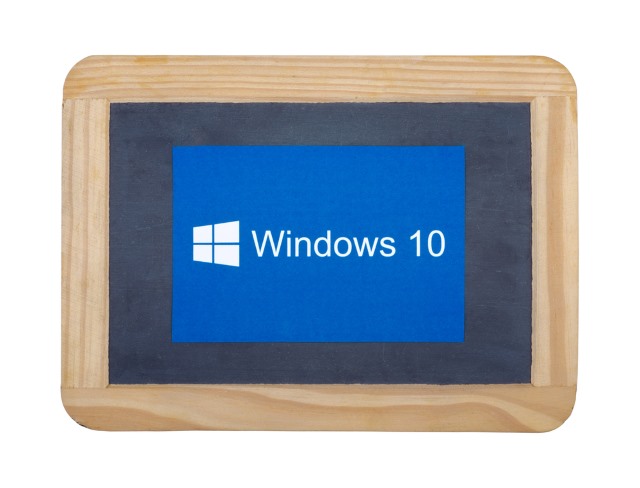Should your business make the move to Windows 10?

Deciding whether to upgrade your operating system is always a big decision. It is one that should not be made lightly, especially when it is a major upgrade like Windows 10.
Over the years, there have been mixed reviews regarding Windows upgrades. I just need to mention the word 'Vista' and some IT folk breakout into a cold sweat!
I’m not going to say whether your organizations should or should not migrate to Windows 10 -- that has to be a decision based on your business and its unique needs. What I will say, is that I believe there are two major points an organization needs to consider and base its decision on: Security and testing.
Security Is a Winner with Windows 10
Windows 10 offers organizations the opportunity to introduce new security technology that will make life even more difficult for cyber criminals to infiltrate their business. Whilst Windows 10 cannot be an excuse for businesses to let their guard down and ‘just assume’ that they will be safe because they have the technology, it will facilitate the opportunity to make security improvements.
Notably, Windows 10 incorporates Bit Locker (full disk encryption) and Application Locker (application security), which provides organizations with a huge opportunity to increase the security of their users. I believe that the loss of an unencrypted laptop is a clear example of an organization that has not placed a priority on security.
In the UK there have been a couple of high-profile examples of this type of security breach, where personal data has been lost on a laptop with no encryption. Another type of ‘quick win’ opportunity, where data can be easily safeguarded with two-factor authentication, is a huge leap forward for security and will give a lot of organizations peace of mind (and save their blushes!).
There is also an opportunity to change the way business is done in organizations within large technology upgrades. Looking back to Windows 7, IT departments adopted an approach of, "this is the way we do it with Windows 7, so that’s what we’ll do". The Windows 10 upgrades are a genuine opportunity to move IT security practices and processes forward.
I also believe it is a great way to achieve a much harder and more robust IT infrastructure roll out without the traditional obstacles of trying to convince the organizations and the powers above that security is a priority. I think you will see many professionals look at Windows 10 and say, "we could never have invested in two factor authentication before because of the high costs; we can now because it’s built into Windows 10".
When designing Windows 10, I feel that Microsoft realized that its operating system was pivotal in the fight against cybercrime. It has introduced a number of security features, including a more robust architecture to hold passwords in memory and to allow secure access to those passwords in a network environment.
This will help combat sophisticated cyber criminals. Microsoft has also included application white listening and two factor authentication. There is also the ability, once you have Windows 10 in a network environment, to include data loss prevention. Imagine being able to email someone a spreadsheet but being able to stop them from forwarding it on.
Think Before You Act
I cannot stress how strongly I feel about this: migrating to Windows 10 should not be a snap decision. The last thing you want to do is find out that some of your key business applications do not work in Windows 10, following the upgrade. Therefore, testing has to be a priority.
The good news is that because a lot of businesses have moved to the cloud, the cloud is browser ready and can deliver applications. Chrome on Windows 10 is unlikely to be that different to Chrome on Windows 7. Therefore, adoption of Windows 10 is likely to be a lot easier than in the past, when you had server architecture and supporting software to worry about.
However, the reality is that there still might be a requirement for access to legacy systems. By carrying out thorough testing, you’ll be able to see if there are any applications that are struggling with the upgrade and they can be addressed.
Windows 10 is not that different to Windows 7 in terms of layout. However, when it comes to IT management, there are a lot more features that need to be adjusted in the business environment. Therefore, organizations cannot ‘rip and replace’.
They have to test and be sure that the upgrade is suitable. Businesses need to think about building their corporate image to mimic that of their business processes. For example, permissions that you used to be able to deal with in Windows 7 might not be the same or located in the same place in Windows 10.
Is Your Future Windows 10?
I believe those who move to Windows 10 will reap the security benefits, both in terms of value and ease of deployment. Windows 10 is offered at a relatively attractive price and is free for the first year. More importantly, Windows 10 is being seen as the next development platform.
You will see a lot of enthusiasm for Windows 10 because it works easily on tablets and mobile phones, bringing the cost of development for new applications down whilst creating a better user experience. In all, large growth is inevitable for Windows 10 across all platforms.
Ian Trump, Security Lead, LOGICnow.
Published under license from ITProPortal.com, a Net Communities Ltd Publication. All rights reserved.
Photo credit: tanuha2001 / Shutterstock